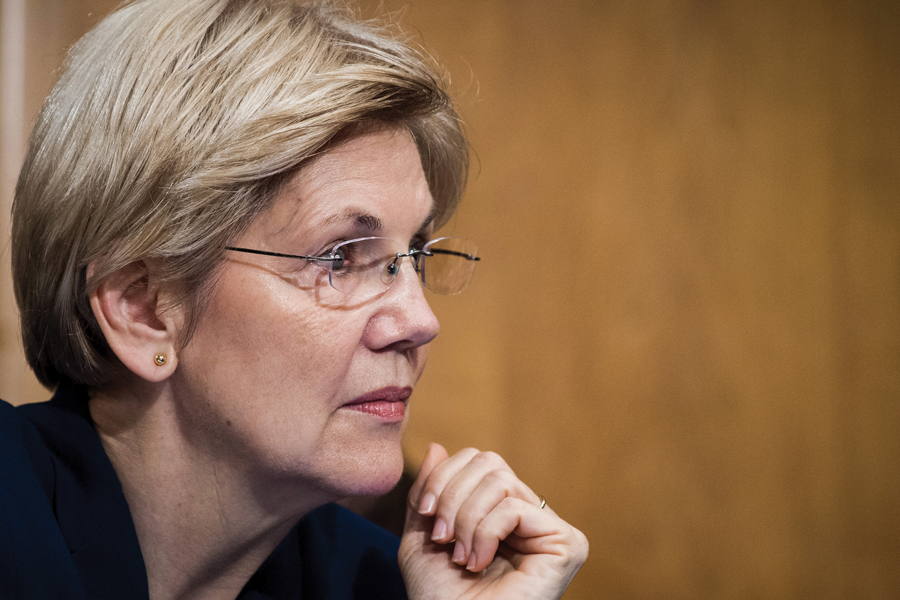Legislation that would provide a remedy for unpaid securities arbitration claims was criticized at a Senate Banking Committee hearing Thursday.
Written by Sen. Elizabeth Warren, D-Mass., the legislation would require the Financial Industry Regulatory Authority Inc. to
establish a fund using Finra fine proceeds to cover unpaid awards.
Opponents of the measure zeroed in on language in the bill that would require Finra to make up any shortfall in the fund by tapping other sources. They said that would mean that Finra would eventually have to raise fees on all its member brokers and, in effect, require good firms to pay more to make up for the firms that shirked their obligations.
"I am a little concerned that socializing this cost means spreading it among perfectly upstanding firms that haven't done anything wrong to cover that which is done by bad actors," Sen. Patrick Toomey, R-Pa., said.
His misgivings echoed those of the Thomas Quaadman, executive vice president of the U.S. Chamber of Commerce, who testified at the hearing, as well as those of the Securities Industry and Financial Markets Association.
In
written testimony submitted to the panel, SIFMA said that Ms. Warren's bill "is fundamentally unfair and inappropriately places the burden of unpaid arbitration awards upon the backs of those firms who do pay their awards, and ultimately, their customers."
In a June 26 letter to the committee chairman, Sen. Mike Crapo, R-Idaho, and raking member, Sen. Sherrod Brown, D-Ohio, the Finra Small Firm Advisory Committee said under Ms. Warren's bill, Finra would be forced to "tax its members on an unlimited basis."
"This will put a tremendous burden on small firms, which make up over 90% of Finra membership," the committee wrote.
In a
report released earlier this year, Finra revealed that unpaid arbitration awards from 2012 to 2016 ranged from $14 million in 2016 to $75 million in 2013. Finra levied $64.9 million in fines in 2017 and $173.8 million in 2016.
Andrew Stoltmann, a Chicago securities attorney and president of the Public Investors Arbitration Bar Association, said that fine revenue would comfortably cover the unpaid arbitration claims.
"There is no question that the amount of fine money that Finra has brought in on a yearly basis surpasses the amount of unpaid arbitration by a factor of two to five times," Mr. Stoltmann said in an interview.
Recently, Sen. John Kennedy, R-La.,
co-sponsored Ms. Warren's bill, giving it a bipartisan sheen. But Mr. Toomey's opposition shows that it has an uphill climb on the GOP side of the aisle.
He said that establishing the unpaid-arbitration fund would provide a pool of money that could entice plaintiffs lawyers and create "a wave of litigation."
Mr. Stoltmann countered that small investors would benefit.
"The people who will be helped by this are the mom and pop investors who lose their life savings due to a duplicitous, scheming broker in a firm that failed to supervise him or her," he said.







